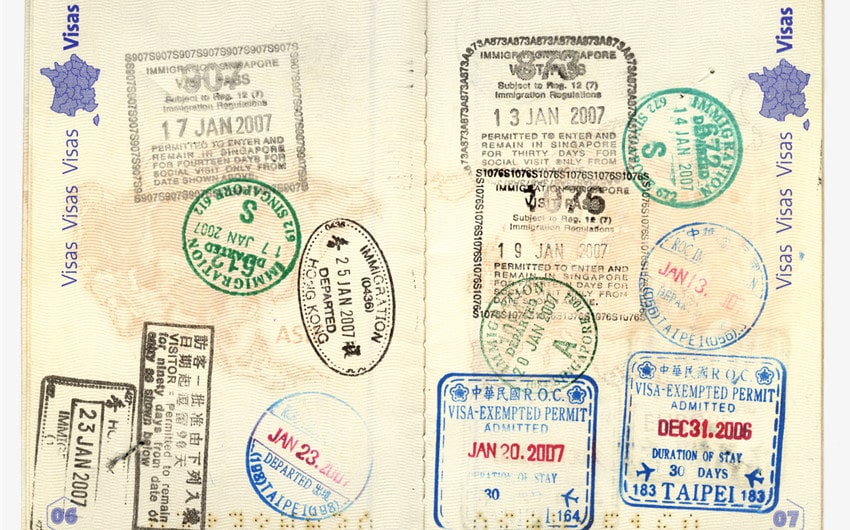Can I Travel With My Passport Almost Expired? What You Need to Know Before You Go
Maybe your flight is booked, your bags are packed—and then you notice your passport is just weeks from expiring. Panic sets in. Can you travel with your passport almost expired? The answer depends on where you’re going, how soon your passport expires, and whether you’re flying domestic or international. Here’s what you need to know to avoid being turned away at the airport.
1. You Can Travel Domestically in the U.S. Without a Valid Passport
If you’re flying within the U.S., you don’t need a passport at all—as long as you have another valid form of ID. A state-issued driver’s license, a REAL ID, or a military ID works just fine. Passport expiration is irrelevant for domestic flights, bus trips, or train travel. But starting May 7, 2025, you’ll need a REAL ID-compliant license or another TSA-approved form of ID for domestic air travel.
2. For International Travel, Most Countries Require 3–6 Months of Validity
Most international destinations require that your passport be valid for at least six months beyond your planned return date. Others may accept three months of validity. If your passport is set to expire soon—especially within three months—you may be denied boarding by your airline or refused entry at immigration.
Examples:
- Mexico: Passport must be valid at time of entry.
- Canada: Passport must be valid at time of entry for most travelers, but six-month validity is recommended.
- United Kingdom: Requires at least three months validity beyond the date you plan to leave the UK.
- Schengen Area (most of Europe): Requires three months of validity after your planned departure date from the zone.
- Thailand, China, Vietnam: Generally require six months of validity beyond your entry date.
Always check the specific entry requirements of the country you’re visiting using their government website or travel advisories from the U.S. Department of State.
3. Airlines Will Deny Boarding If Your Passport Doesn’t Meet Requirements
Even if your destination seems flexible, your airline might not be. Most airlines will not let you board an international flight if your passport doesn’t meet the entry requirements of your destination. They can be fined or held responsible if you’re turned away upon arrival. That’s why airlines often check passport expiration dates during online check-in or at the departure gate.
4. Passport Validity Matters More Than the Expiration Date
It’s not just about when your passport expires—it’s about how much valid time remains before it does. That’s what border agents and airlines will look at. Even if your passport expires after your return flight, some countries still won’t admit you unless you have a “cushion” of 3 or 6 months. Don’t assume you’re fine just because your trip is short and ends before the expiration date.
5. Can You Renew a Passport in a Hurry?
Yes, if you’re within 14 days of travel, you may be eligible for expedited passport services through a regional U.S. passport agency. You’ll need:
- Proof of imminent international travel (like a flight reservation)
- Form DS-82 (passport renewal) or DS-11 (first-time or lost passport)
- Passport photos
- Government ID
- Expedited fee (currently $60 in addition to standard fees)
You can also request an expedited renewal by mail, but processing typically takes 2–3 weeks with express service. If you’re closer to your departure date, make an in-person appointment ASAP or consider contacting your congressional representative for help in emergencies.
6. Can You Travel on a Passport That’s Expired but Still “Valid” for U.S. Return?
In rare cases, U.S. citizens may re-enter the United States with an expired passport under special pandemic-era policies (now mostly phased out). But you cannot travel abroad on an expired passport, even to Canada, Mexico, or the Caribbean. Once outside the U.S., a valid passport is always required for international travel.
7. What Happens If You Try to Travel with an Almost-Expired Passport?
If you attempt to travel internationally with a passport that doesn’t meet the required validity window, you may encounter:
- Denied boarding: Your airline won’t let you check in or board the flight.
- Denied entry: Even if you make it to your destination, border control could send you back.
- Trip delays or cancellations: You could lose money on flights, hotels, or excursions if you have to cancel or rebook last-minute.
Travel insurance might not cover losses due to invalid documentation—so double-check your passport long before departure.
8. How to Avoid Passport Problems Before You Travel
Here are a few tips to avoid last-minute passport stress:
- Renew early: Start your renewal process 9–12 months before expiration, especially if you plan to travel soon.
- Check destination rules: Visit the embassy site or travel.state.gov to confirm passport validity requirements for each country.
- Use expedited service: If your trip is within 4–6 weeks, opt for expedited processing with tracking.
- Keep a digital copy: Save a scanned image of your passport to your cloud storage in case of emergency abroad.
You Need Time on the Clock—Not Just a Passport
Your passport might still be “technically” valid, but that doesn’t mean it’s good enough for international travel. Most countries want to see 3–6 months of validity beyond your departure or return date. If you’re cutting it close, renew now. It’s better to be safe—and ready—than scrambling last minute at the airport.







